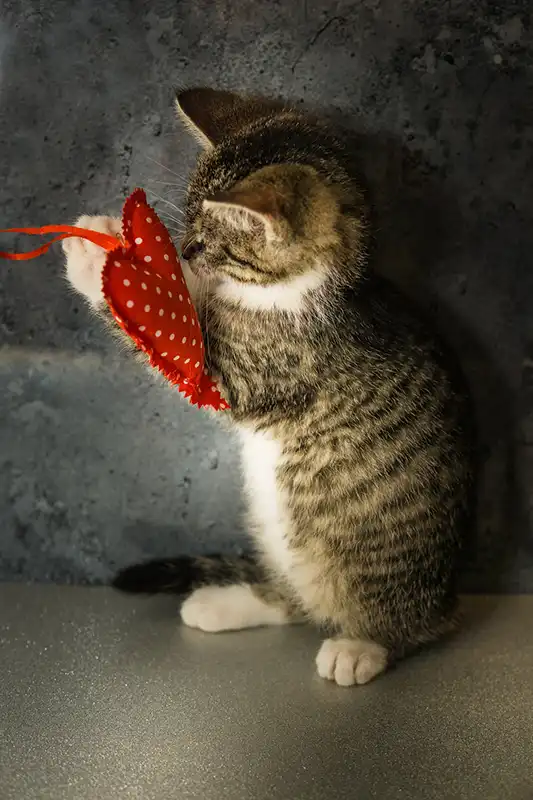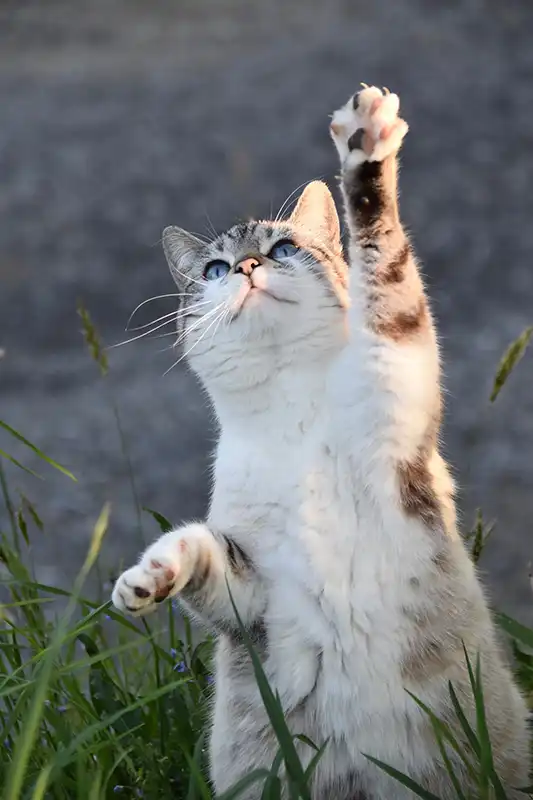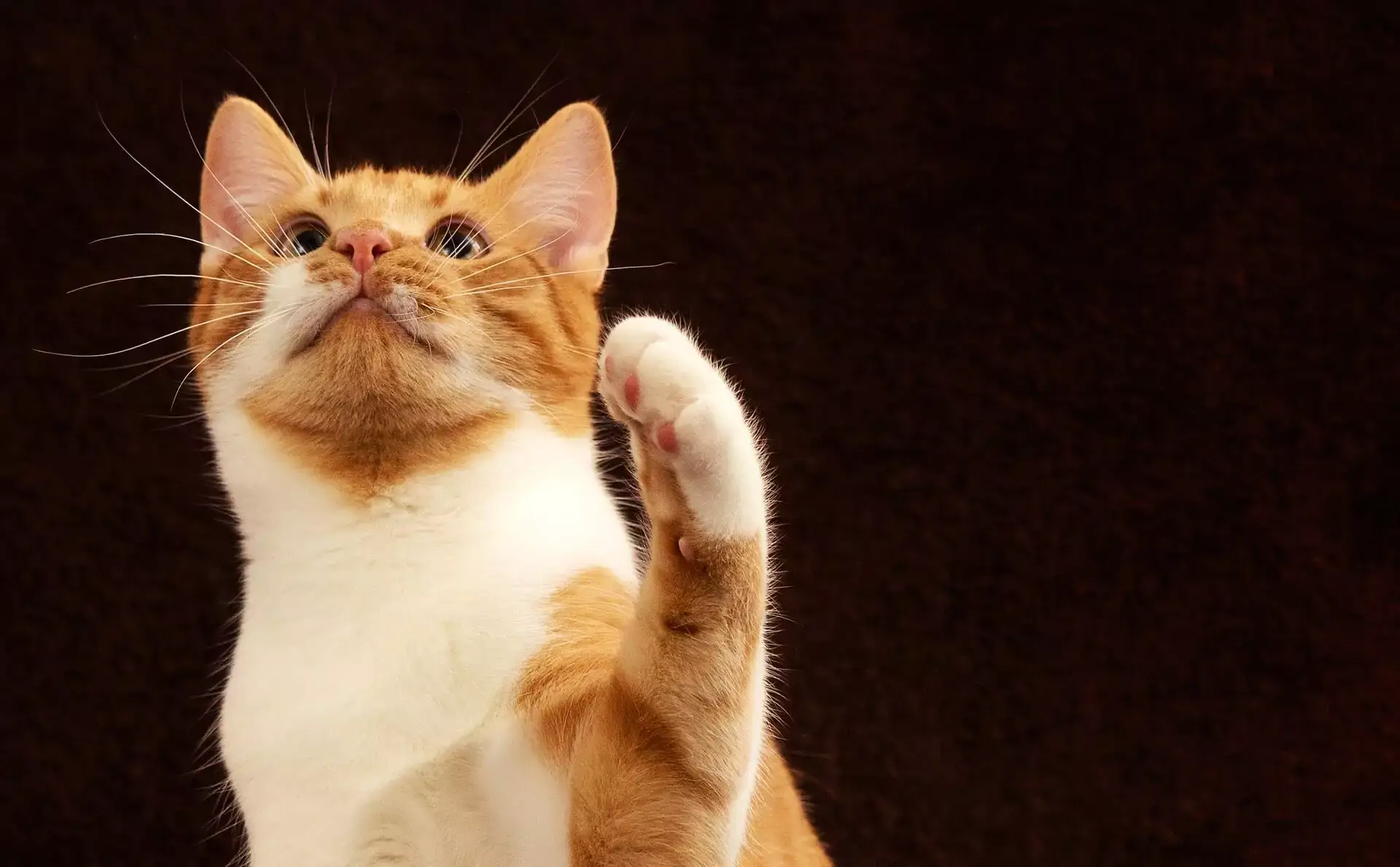Obesity in cats is more than a cosmetic issue—it’s a serious health risk that can shorten your feline friend’s life. It may start with a few extra treats or less playtime, but over time, those pounds add up. Today, over 60% of domestic cats in the U.S. are overweight or obese. But the good news? You can turn things around—and we’re here to help you do it safely.
At All Cats Clinic, we take your kitty’s health seriously—and that includes her waistline. If you’re in Fayetteville, AR and looking for a vet near me who understands how to manage kitties’ weight with compassion and expertise, our team of skilled vets and caring veterinarians at our vet clinic is ready to help.
Why Feline Obesity Is Dangerous
Extra weight may look cute, but it can cause or worsen a host of serious health conditions:
- Diabetes mellitus
- Arthritis and joint pain
- Liver disease (hepatic lipidosis)
- Heart and respiratory issues
- Urinary tract disease
- Decreased life expectancy
Fun fact: Just one pound of excess weight on a cat is the equivalent of 15 pounds on a person!
Is Your Cat Overweight? How to Tell
Cats are masters at hiding weight gain under fluff, so it’s not always easy to tell.
Signs your feline overlord might be overweight:
- No visible waist when viewed from above
- Difficulty grooming or cleaning herself
- Lethargy or lack of playfulness
- Trouble jumping onto furniture
- Ribs not easily felt with gentle pressure
We use a Body Condition Score (BCS) chart at All Cats Clinic to assess your cat’s physique and determine whether she’s in the healthy range.
Common Causes of Cat Obesity
Overfeeding
Free-feeding (leaving food out all day) is one of the biggest culprits. Cats tend to graze and can quickly eat more than they need.
High-Calorie Treats
Many commercial treats are calorie-dense. Even a few extra can tip the scales over time.
Lack of Exercise
Indoor cats don’t get the same movement as outdoor cats. Without stimulation, they’re more likely to sleep the day away.
Neutering
Spayed or neutered cats have lower calorie needs. While this doesn’t cause weight gain, it means their diet must be adjusted accordingly.
Safe Weight Loss Strategies
Helping your feline bestie lose weight must be done carefully—too quickly, and you risk serious complications.
1. Schedule a Vet Check
Always start with a full check-up at our pet clinic. We’ll rule out underlying issues like hypothyroidism or fluid retention and create a custom weight-loss plan.
2. Portion Control
Use a kitchen scale or measuring cup to serve exact portions. We’ll help calculate how many calories your cat actually needs based on her target weight.
3. Choose the Right Food
Weight loss foods are:
- Lower in calories
- Higher in fiber and protein
- Formulated to keep your kitty full
Don’t just reduce regular food—it can lead to nutrient deficiencies. Ask your veterinarian about prescription diets if needed.
4. Track Progress
We recommend monthly weigh-ins at our veterinary clinic to ensure safe, steady weight loss (1–2% of body weight per week).
5. Increase Activity
Exercise isn’t just for dogs! Try:
- Feather wands or laser pointers
- Puzzle feeders
- Climbing trees and scratching posts
- 10–15 minutes of active play, twice a day
Your feline pal might act unimpressed at first—but stick with it. Play can become a favorite daily ritual.
What Not to Do
- Don’t crash diet: Cats can develop fatty liver disease if they lose weight too quickly.
- Don’t guess: Always use veterinary guidance to determine portions and calorie goals.
- Don’t forget enrichment: Bored cats may overeat. Keep her engaged!
FAQs
How long does it take for a cat to lose weight?
Healthy weight loss is gradual—usually over several months. Our animal hospital will help you monitor safely.
Can I feed my cat less of her current food?
Not always. Cutting calories too drastically can be dangerous. It’s best to switch to a vet-approved weight management diet.
My cat begs constantly—what can I do?
Try puzzle feeders, more playtime, or spacing meals throughout the day. You can also try low-calorie snacks like plain canned pumpkin (in moderation).
Should I eliminate treats altogether?
Not necessarily. Just switch to low-calorie treats and keep them to less than 10% of daily intake.
Will exercise alone help my cat lose weight?
Exercise helps, but diet is 90% of the battle. Combine both for best results.
Visit Our Vet Clinic in Fayetteville, AR
If you’re concerned about your cat’s weight, All Cats Clinic in Fayetteville, AR is here to help. Our caring vets, veterinarians, and staff at our veterinary clinic offer customized, compassionate plans to help your feline friend lose weight safely and feel her best. Don’t wait for weight to become a serious health issue—schedule your wellness exam with us today.






!Social Media Icons